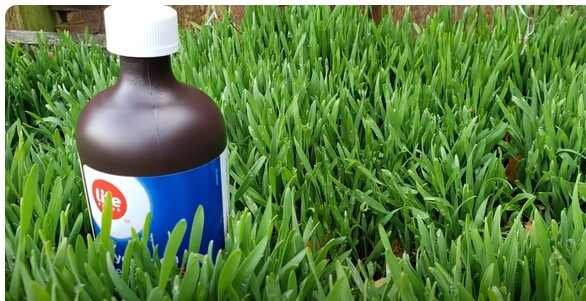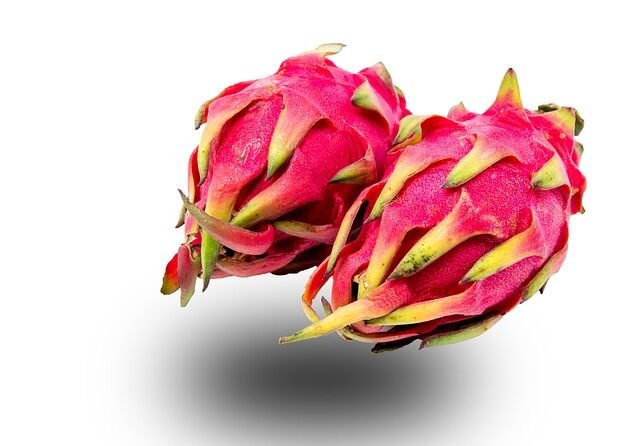First up, what exactly is hydrogen peroxide? The hydrogen peroxide commonly available to us is a clear, odorless liquid with a chemical combination of H2O2 — that is, it’s simply water with an extra oxygen ion attached to it. It’s very inexpensive and found in pharmacies and grocery stores worldwide, most commonly in its dilute forms of three percent or six percent. Hydrogen peroxide is a naturally occurring compound; it occurs in groundwater, rainfall, the oceans, and even in our bodies. This natural occurrence tells us that hydrogen peroxide is safe to use in our gardens without systemic, lasting negative effects on the biology of our soils and plants.
Now that we know what hydrogen peroxide is, why do we, as gardeners, care about it? What can it do for us? Let’s find out.
The first benefit of hydrogen peroxide in our gardens is soil aeration. Compacted or super-wet anaerobic soils are not great for our plants. Direct application of a 1-to-20 ratio of common three percent household hydrogen peroxide can aerate your soil almost immediately. Available oxygen is vital and necessary for plant roots to function properly and uptake nutrients to support the plant. You can often see immediate benefits to a plant’s vigor when using a peroxide solution on oxygen-starved soil.
The second advantage of utilizing hydrogen peroxide in the nursery is assisting us with root decay, frequently found in holder cultivating, tragically normal in tomato and potato plants. Root decay can devastatingly affect a harvest’s efficiency. Applying the treatment is very similar to aerating the soil if you notice root rot in any of your vegetable crops. The main contrast here is that I increased the fixation to a 1-to-10 proportion of three percent hydrogen peroxide. Straightforwardly apply that to the dirt right at the foundation of the plant, and you ought to see a reaction moderately rapidly.
The third benefit of hydrogen peroxide is that it’s a benign, safe disinfectant. You can use it on all of your tools, pots, and containers. You can also use it to clean out all your nursery trays, their holders, and even your greenhouse itself. Safe, effective, and you can be sure that hydrogen peroxide won’t leave behind any systemic chemical residues as it breaks down to its base components of just water and oxygen. For disinfecting purposes, I use three percent hydrogen peroxide at either full or half strength.
Another great use of hydrogen peroxide is on our seeds. Using the three percent solution at about a quarter strength (that is, one part hydrogen peroxide to four parts water), soak your seeds for up to four hours before planting to see the best results. The peroxide will kill off any unwanted bacteria or fungus that may affect your seeds’ viability. On top of that, it has been suggested that this soaking in hydrogen peroxide can also cause your seeds to sprout faster and with better results.
The fifth benefit of hydrogen peroxide in the garden is pest control. As organic growers, we’re always looking for another way to combat aphids, spider mites, fungus gnats, white flies, and all the other nasty bugs trying to ruin our fun. Of course, we want to fight these insect enemies safely, and one way to do this is with hydrogen peroxide. Just one spritz of a quarter-strength, three percent peroxide solution is enough to deter even the most fervent of pest outbreaks. Spray directly on the leaves or soil and feel assured that you’re not resorting to harmful chemicals or insecticides. Unlike a lot of other natural pest control methods, hydrogen peroxide seems to be somewhat effective against the eggs as well, and that’s huge. Often these natural pest control methods need re-application after re-application, but with hydrogen peroxide, I’m not saying you only need to do it once and then it’s all fixed, but it does seem to be effective against all stages of the pest life cycle.
To conclude, organisms have control over the ground and beneath it. Fungal diseases and fungi can quickly destroy a crop. Hydrogen peroxide can be used to treat skin problems. You can effectively spray the plants with that equivalent three percent peroxide by simply spraying the leaves with a 1-to-20 weak arrangement. Make immediate use of this shower to combat issues such as fine development. . Hydrogen peroxide, whether beneficial or harmful, will effectively reduce soil microbes and bacteria, but you won’t want to apply it constantly to your nursery. Use it only when it can have a direct and immediate effect on your garden. On the other hand, you can rest assured that you have provided a risk-free solution to a few common issues in the garden without the negative effects of traditional chemical methods.
Hey, if you’ve got any other uses for hydrogen peroxide in the garden, leave it in the comments down below. Here’s a recap of the six benefits of hydrogen peroxide in your garden along with the suggested strength.



